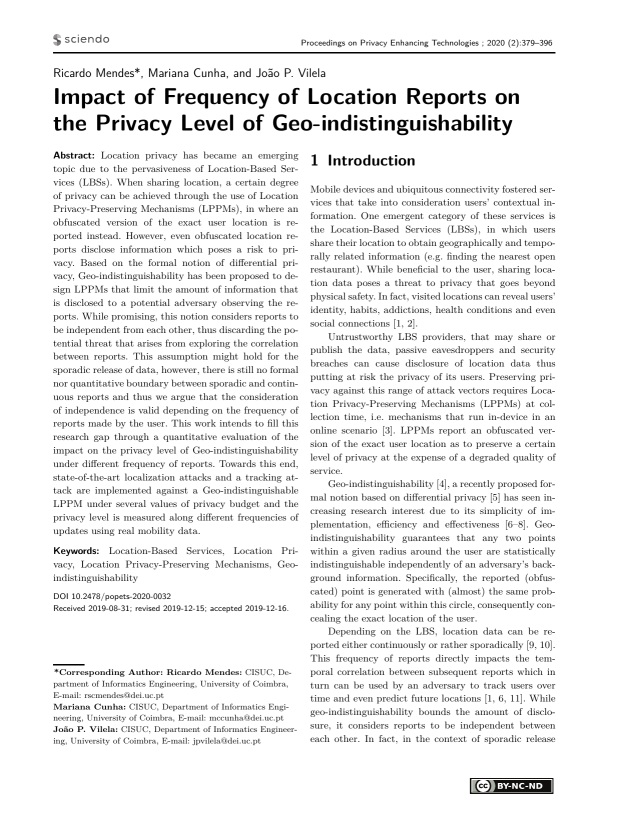Impact of Frequency of Location Reports on the Privacy Level of Geo-indistinguishability
Authors: Ricardo Mendes (CISUC, Department of Informatics Engineering, University of Coimbra), Mariana Cunha (CISUC, Department of Informatics Engineering, University of Coimbra), João P. Vilela (CISUC, Department of Informatics Engineering, University of Coimbra)
Volume: 2020
Issue: 2
Pages: 379–396
DOI: https://doi.org/10.2478/popets-2020-0032
Abstract: Location privacy has became an emerging topic due to the pervasiveness of Location-Based Services (LBSs). When sharing location, a certain degree of privacy can be achieved through the use of Location Privacy-Preserving Mechanisms (LPPMs), in where an obfuscated version of the exact user location is reported instead. However, even obfuscated location reports disclose information which poses a risk to privacy. Based on the formal notion of differential privacy, Geo-indistinguishability has been proposed to design LPPMs that limit the amount of information that is disclosed to a potential adversary observing the reports. While promising, this notion considers reports to be independent from each other, thus discarding the potential threat that arises from exploring the correlation between reports. This assumption might hold for the sporadic release of data, however, there is still no formal nor quantitative boundary between sporadic and continuous reports and thus we argue that the consideration of independence is valid depending on the frequency of reports made by the user. This work intends to fill this research gap through a quantitative evaluation of the impact on the privacy level of Geo-indistinguishability under different frequency of reports. Towards this end, state-of-the-art localization attacks and a tracking attack are implemented against a Geo-indistinguishable LPPM under several values of privacy budget and the privacy level is measured along different frequencies of updates using real mobility data.
Keywords: Location-Based Services, Location Privacy, Location Privacy-Preserving Mechanisms, Geoindistinguishability
Copyright in PoPETs articles are held by their authors. This article is published under a Creative Commons Attribution-NonCommercial-NoDerivs 3.0 license.

